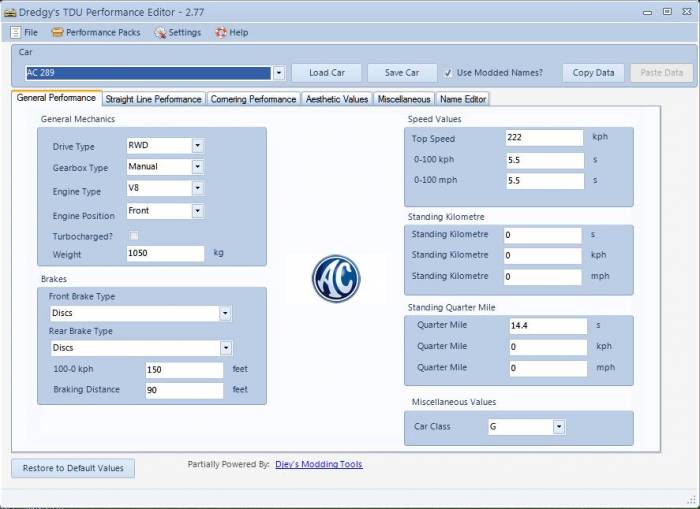Tdu Performance Editor Database Not Found
%2C445%2C291%2C400%2C400%2Carial%2C12%2C4%2C0%2C0%2C5_SCLZZZZZZZ_.jpg)
Apr 9, 2013 - This Article is either not completed or under constant updating. Adobe pdf editor. NOTE - duo the update on 05 May 2011, it seems that most hacks are not working. Handling hacking / editing (handling editor) - everything possible. Launcher v1.5 - from Knowledge Database; TDU2 Universal Launcher v3.0 or latest.
Oracle databases are often shared across geographical areas, so it's imperative that the Oracle professional understand how database performance is affected by network communications. The Transparent Network Substrate (TNS), provided by Oracle, allows distributed communications between databases. The TNS, which is a distributed protocol, allows for transparent database communications between remote systems. The TNS serves as an insulator between Oracle's logical data request and the physical communications between the remote servers.
As such, the network administrator is able to control much of the network performance tuning. The Oracle administrator, then, has little control over the network settings that can affect overall database performance ( Figure A). Figure A Tuning the Oracle network You can improve the performance of distributed transactions by using some important settings, several of which are discussed in this article. The init.ora parameters relate to distributed communications, while the TCP parameters, such as tcp.nodelay, can be used to change the packet-shipping mechanisms within the Oracle database. I also discuss the parameters within the sqlnet.ora, tnsnames.ora, and protocol.ora files. You can use these tools to change the configuration and size of TCP packets, and they can have a profound impact on the underlying network transport layer to improve the throughput of all Oracle transactions. Oracle*Net does not allow the Oracle administrator to tune Oracle network parameters to improve network performance.
In fact, the majority of network traffic can't be tuned from within the Oracle environment. Oracle*Net is a layer in the OSI model that resides above the network-specific protocol stack.  Almost all network tuning, then, is external to the Oracle environment. In response to a data request, Oracle*Net gets the data and hands it over to the protocol stack for transmission. The protocol stack then creates a packet from this data and transmits it over the network.
Almost all network tuning, then, is external to the Oracle environment. In response to a data request, Oracle*Net gets the data and hands it over to the protocol stack for transmission. The protocol stack then creates a packet from this data and transmits it over the network.

Oracle*Net's sole task is to pass data to the protocol stack, leaving little means for the DBA to improve network performance. The DBA can, however, control the frequency and size of network packets. There exists in Oracle a wealth of tools to change packet frequency and size.
A simple example involves changing the refresh interval for a snapshot to ship larger amounts at less frequent intervals. Oracle*Net connections between servers can be tuned using several parameters. Keep in mind, though, that network tuning is outside the scope of Oracle, and a qualified network administrator should be consulted for tuning the network. The frequency and size of packet shipping across the network can be affected by using settings contained in the following parameter files: • protocol.ora file— tcp.nodelay • sqlnet.ora server file— automatic_ipc • sqlnet.ora client file— break_poll_skip • tnsnames.ora file— SDU, TDU • listener.ora file— SDU, TDU, and queuesize These tuning parameters will affect the performance of the Oracle*Net layer only.
- вторник 29 января
- 80